
Earl of Lonsdale is a title that has been created twice in British history, firstly in the Peerage of Great Britain in 1784, and then in the Peerage of the United Kingdom in 1807, both times for members of the Lowther family.

Baron Stanley of Alderley, in the County of Chester, is a title in the Peerage of the United Kingdom. It was created in 1839 for the politician and landowner Sir John Stanley, 7th Baronet. Upon his death in 1850, he was succeeded as 2nd Baron Stanley of Alderley and 8th Baronet of Alderley Hall by his son Edward, who was a prominent Liberal politician and notably served as President of the Board of Trade, Postmaster General and had in 1848 been created Baron Eddisbury, of Winnington in the County Palatine of Chester, in his own right. His wife Henrietta was a prominent campaigner for women's education. After his death, the Stanley of Alderley and Eddisbury baronies remained united; most holders have since chosen to be known as Lord Stanley of Alderley. The 3rd Baron Stanley of Alderley had a career in the Diplomatic Service; as he was childless he was succeeded by his younger brother, the 4th Baron. He was liberal member of parliament for Oldham. In 1909, the 4th Baron Stanley of Alderley acquired a further title when he succeeded his first cousin once removed, the Earl of Sheffield, according to a special remainder and thus inherited the title of 4th Baron Sheffield. After his death the titles passed to his son, the 5th Baron Stanley of Alderley. He was Liberal Member of Parliament for Eddisbury and also served as Governor of Victoria. His eldest son, the 6th Baron Stanley of Alderley, sold the family seat of Alderley Hall in 1938. He was married four times, the second time to Sylvia Ashley. On his death the titles passed to his younger brother, who preferred to be known as Lord Sheffield. He only held the titles for three months. As of 2013 the titles are held by the latter's cousin, the 9th Baron Stanley of Alderley, who succeeded his father in that year. He is the grandson of Oliver Hugh Stanley, youngest son of the 4th Baron.

Baron Silsoe, of Silsoe in the County of Bedford, is a title in the Peerage of the United Kingdom. It was created on 18 January 1963 for the barrister Sir Malcolm Trustram Eve, 1st Baronet. He had already been created a Baronet, of Silsoe in the County of Bedford, on 18 January 1943. He was succeeded by his son, the second Baron. Known as David Silsoe, he was also a barrister. As of 2017 the titles are held by his son Simon, the third Baron, who succeeded in 2005.
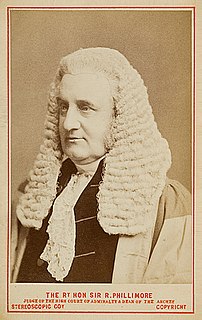
Baron Phillimore, of Shiplake in the County of Oxford, is a title in the Peerage of the United Kingdom. It was created in 1918 for the former Judge of the High Court of Justice and Lord Justice of Appeal, Sir Walter Phillimore, 2nd Baronet. The Phillimore Baronetcy, of The Coppice, had been created in the Baronetage of the United Kingdom on 28 December 1881 for his father Sir Robert Phillimore, who was also a noted lawyer and judge. The first Baron was succeeded by his son, the second Baron.

There have been three baronetcies created for persons with the surname Booth, one in the Baronetage of England and two in the Baronetage of the United Kingdom. The 1916 creation remains extant, the 1835 creation became extinct in 1896 and the 1611 baronetcy has been dormant since 1797. The senior line of the first creation was elevated to the peerage as Baron Delamer and Earl of Warrington.

Baron Dufferin and Claneboye, of Ballyleidy and Killyleagh in County Down, Northern Ireland, is a title in the Peerage of Ireland. It was created 30 July 1800 for Dame Dorcas Blackwood, widow of Sir John Blackwood, 2nd Baronet, Member of the Irish Parliament for Killyleagh and Bangor, in return for support for the Union of Ireland and the United Kingdom.
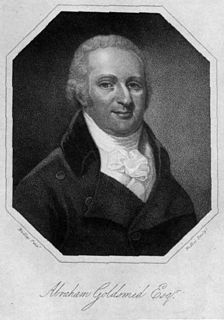
Goldsmid is the name of a family of Anglo-Jewish bankers who sprang from Aaron Goldsmid, a Dutch merchant who settled in England around 1763. Two of his sons, Benjamin Goldsmid and Abraham Goldsmid, began business together around 1777 as bill-brokers in London. They became great powers in the money market during the Napoleonic Wars through their dealings with the government. In 1810, Abraham Goldsmid was joint contractor with the Barings for a government loan, but owing to a depreciation of the scrip, he was forced into bankruptcy and committed suicide. His brother, in a fit of depression, had similarly taken his own life two years before. Both were noted for their public and private generosity, and both played major roles in funding and managing the Naval Asylum – later renamed the Royal Naval Asylum. Benjamin left four sons, the youngest being Lionel Prager Goldsmid, and a daughter Mary Ann Goldsmid who married Timothy Yeats Brown in 1812; Abraham left a daughter, Isabel Goldsmid.

Sir Isaac Lyon Goldsmid, 1st Baronet was a financier and one of the leading figures in the Jewish emancipation in the United Kingdom, who became the first British Jew to receive a hereditary title.

There have been four baronetcies created for members of the Acland family, which originated in the 12th century at the estate of Acland in the parish of Landkey, North Devon, two in the Baronetage of England and two in the Baronetage of the United Kingdom.
The Seely Baronetcy, of Sherwood Lodge in Arnold in the County of Nottingham and Brook House in Brooke on the Isle of Wight, is a title in the Baronetage of the United Kingdom. It was created on 19 February 1896 for the industrialist Charles Seely (1833–1915), son and namesake of Charles Seely (1803–1887). The first baronet's grandson, the third Baronet, was created Baron Sherwood, of Calverton in the County of Nottingham, in the Peerage of the United Kingdom in 1941. The peerage became extinct on his death, but he was succeeded in the baronetcy by his younger brother, the fourth Baronet. As of 2019, the title is held by the latter's grandson, the sixth baronet.
The Birkin Baronetcy, of Ruddington Grange in the parish of Ruddington in the County of Nottingham, is a title in the Baronetage of the United Kingdom. It was created on 25 July 1905 for the businessman Thomas Isaac Birkin. He was a lace manufacturer, director of the Great Northern Railway and the Mercantile Steamship Company. His grandson, the 3rd Baronet, was a racing driver. He died without male issue and was succeeded by his uncle, the fourth Baronet. his sons pre-deceased him and he was succeeded by his nephew, the fifth Baronet. As of 2007 the title is held by the latter's son, the sixth Baronet, who succeeded in 1985.
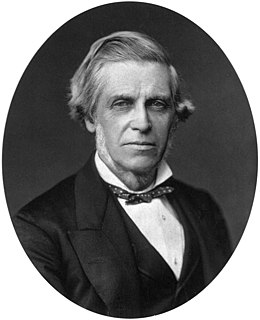
There have been two baronetcies created for persons with the surname Bowman, both in the Baronetage of the United Kingdom.
There have been four baronetcies created for persons with the surname Bell, all in the Baronetage of the United Kingdom. One creation is extant as of 2007.
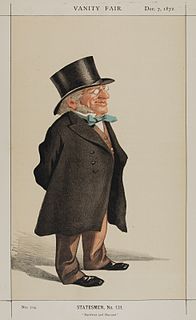
Sir Francis Henry Goldsmid, 2nd Baronet was an Anglo-Jewish barrister and politician.

The Ellis-Griffith Baronetcy, of Llanidan in the County of Anglesey, was a title in the Baronetage of the United Kingdom. It was created on 26 January 1918 for the barrister and Liberal politician Ellis Ellis-Griffith. He was succeeded by his only surviving son, the second Baronet. On his early death in 1934 the title became extinct.
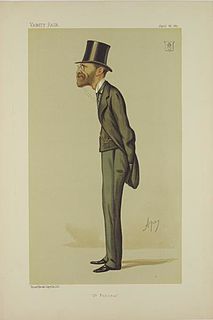
Sir Julian Goldsmid, 3rd Baronet was a British lawyer, businessman and Liberal politician who sat in the House of Commons between 1866 and 1896.
The d'Avigdor-Goldsmid Baronetcy, of Somerhill in the County of Kent, was a title in the Baronetage of the United Kingdom. It was created on 22 January 1934 for Osmond d'Avigdor-Goldsmid, president of the Board of Deputies of British Jews and chairman for the Jewish Agency for Palestine in London. He was the grandson of Count Henri Salomon d'Avigdor, Duke of Acquaviva, and Rachel, daughter of Sir Isaac Goldsmid, 1st Baronet, and succeeded to the Goldsmid estates on the death of his cousin Sir Julian Goldsmid, 3rd Baronet. His eldest son, the second Baronet, was a company director and Conservative politician. The latter was succeeded by his younger brother, the third Baronet, a retired military commander. He was Conservative Member of Parliament for Lichfield and Tamworth. The title became extinct on his death in 1987.

The Salomons, later Goldsmid-Stern-Salomons Baronetcy, of Broom Hill in the Parish of Tunbridge in the County of Kent and of Great Cumberland Place in the County of Middlesex, was a title in the Baronetage of the United Kingdom. It was created on 26 October 1869 for David Salomons, a leading figure in the 19th century struggle for Jewish emancipation in the United Kingdom, with remainder in default of male issue of his own to his nephew David Lionel Salomons and the heirs male of his body. Salomons died childless and was succeeded according to the special remainder by his nephew, the second Baronet. He was the son of Philip Salomons, younger brother of the first Baronet. The second Baronet married Laura, daughter of Hermann Stern, 1st Baron de Stern and Julia, daughter of Aaron Asher Goldsmid, brother of Sir Isaac Goldsmid, 1st Baronet. In 1899 he assumed the additional surnames of Goldsmid and Stern. The title became extinct on his death in 1925.
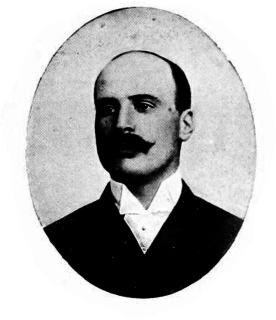
Sir Charles James Jessel, 1st Baronet DL, JP, was a British barrister, magistrate and businessman.
Colonel Herbert Merton Jessel, 1st Baron Jessel CB, CMG, TD, DL, JP, known as Sir Herbert Jessel, Bt, between 1917 and 1924, was a British soldier and Liberal Unionist, later Conservative politician.















